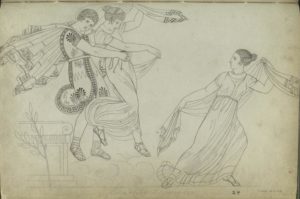In-brief: is it ever the case that things happen that “nobody saw coming”? Our guest on this week’s podcast would say “no.” He is Richard Clarke, a former National Coordinator for Security, Infrastructure Protection and Counter-terrorism for the United States and a veteran of four administrations, from President Ronald Reagan through to President George W. Bush. We talk about modern-day Cassandras: people who are warning about looming catastrophes, mostly in vain.
The risks are out there and in our over-populated, over heating planet, they just seem to be multiplying: drought, crop failures, the spread of diseases like Zika. But what policy makers and officials worry about the most are so-called “Black Swan” events – catastrophes, like the attacks of September 11, 2001 or the meteoric rise of the Islamic State that nobody saw coming.

But is it ever the case that things happen that “nobody saw coming”? Our guest on this week’s podcast would say “no.” He is Richard Clarke, a former National Coordinator for Security, Infrastructure Protection and Counter-terrorism for the United States and a veteran of four administrations, from President Ronald Reagan through to President George W. Bush.
In his latest book “Warnings: Finding Cassandras to Stop Catastrophes,” co-authored with R.P. Eddy, Dick takes a look at people who warned repeatedly of major cataclysms before they happened, but whose warnings fell on deaf ears. These individuals, dubbed Cassandras after the figure from Homer’s Iliad, pop up time and again in our analysis of major disasters. Who are they? How do they come by their prophetic views and why do leaders, governments and societies ignore them time and again – typically at great cost? Clarke and his co-author R.P. Eddy also interview modern-day Cassandras: people who are warning about coming disasters that have not yet occurred.
I sat down with Richard in the Security ledger Studio to discuss Warnings. We talk about his research and about modern-day threats, such as sea level rise, runaway artificial intelligence and hacking threats to the electric grid, where there have been plenty of warnings – so far ignored. Dick tells me there are a number of pre-conditions for Cassandra situations: from regulatory capture to “scientific reticence” to the prickly personalities that often go along with what Clarke calls “sentinel intelligence.”
I started by asking Richard to talk about the mythical figure of Cassandra and how her story relates to the modern-day.
Check our full conversation in our latest Security Ledger podcast or over at Soundcloud. You can also listen to it on iTunes. As always, if you like our intro music, give some love to the group JoeLess Shoe, who recorded “Baxton,” the song we use in just about every podcast.






